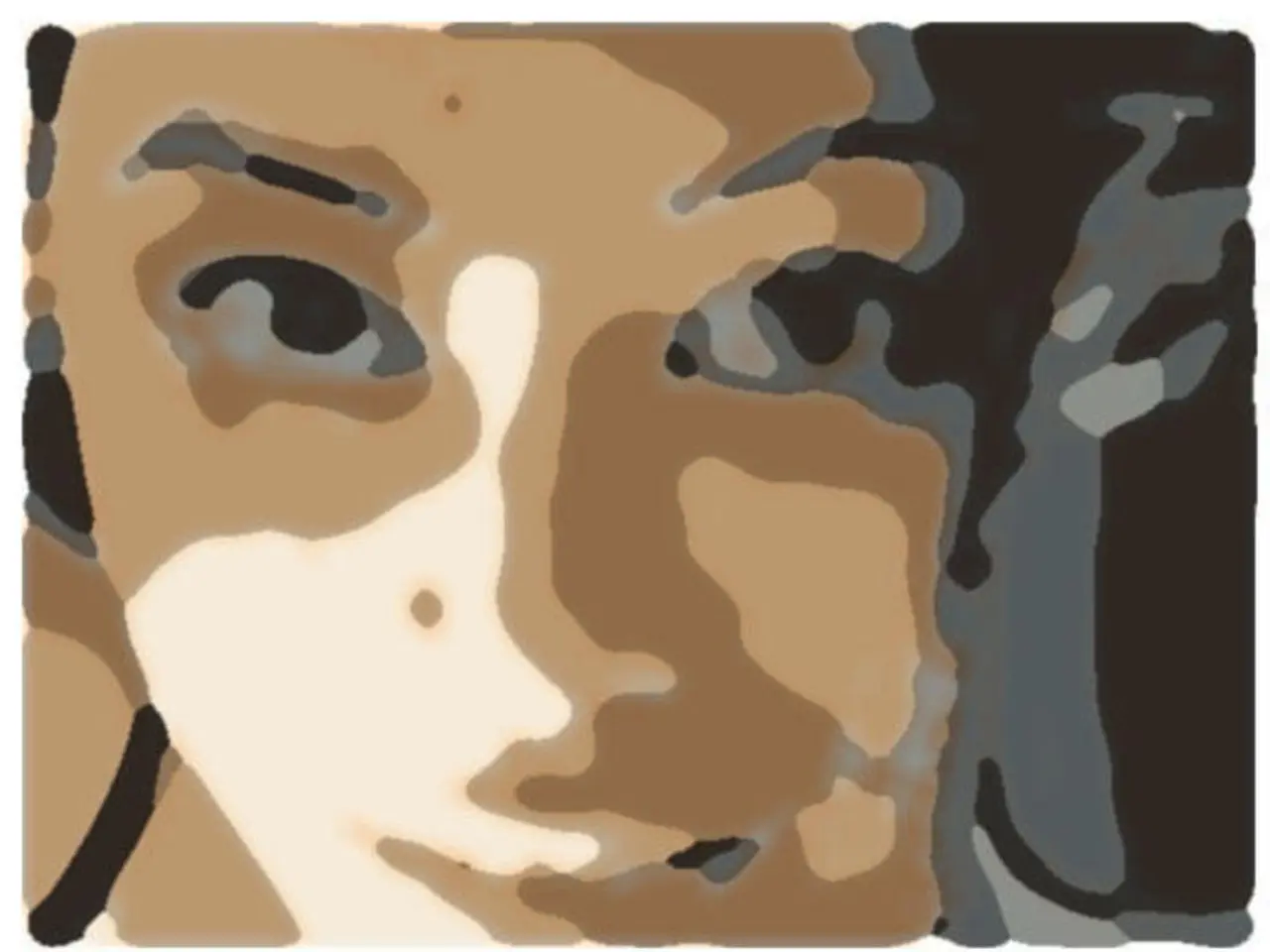Elderly Skin Pimples: Causes and Remedies Explored
In the journey of aging gracefully, taking care of our skin with patience and informed choices is key. This is especially important when it comes to the temptation of pimple popping, a habit that spans generations. Understanding why we feel the urge to pop a pimple can help address the issue. One reason is the instant gratification provided by the act of squeezing a pimple and seeing it burst [1].
Studies have shown that acne can affect elderly individuals, often due to hormonal changes, particularly during menopause. Dr. Niti Khunger from Safdarjang Hospital in New Delhi, India, has researched acne in older adults [2]. Pimples in the elderly are often caused by clinical hyperandrogenism, a hormonal imbalance [3]. As women age, the levels of estrogen, a key player in maintaining skin health, tend to decrease, while male hormones like testosterone and dihydrotestosterone become more prominent [4].
Other factors contributing to acne in older adults include thyroid troubles, high prolactin levels, insulin resistance, and lifestyle changes such as stress, a bad diet, lack of sleep, and laziness [5]. It's essential to identify these triggers to effectively manage acne in the elderly.
Treatment for menopausal acne depends on its severity. Mild cases can be treated with creams and lotions, while more severe cases may require spironolactone, a medication that fights androgens [2]. If a woman in menopause has a few pimples, no need for extensive checks. But if it's a widespread issue, hormone levels and basic health checks (like diabetes and high blood pressure) should be considered [2].
For elderly individuals with compromised immune systems, pimple popping can lead to serious long-term effects such as skin infections (including staph infections), prolonged redness, scarring, and worsening skin conditions due to fragile skin and impaired healing capacity [1][5]. Their skin may also be more prone to irritation and slower recovery.
Therefore, recommended treatments and precautions for managing pimples in such individuals include avoiding popping or squeezing pimples, especially deep or painful ones like cysts, to prevent spreading infection and inflammation [5]. Use gentle skin care, avoiding harsh irritants that can worsen skin fragility or eczema-related problems, which are common in older adults with poor circulation [1]. For infected or inflamed pimples, a healthcare provider may prescribe appropriate antibiotics, such as cephalexin, with adjusted dosages mindful of kidney function and hydration status in the elderly [4]. Maintain proper skin hygiene and moisturizing to support skin barrier repair. Consult a dermatologist for safe blackhead or pimple removal techniques adapted to elderly skin, focusing on minimizing trauma to delicate skin [3].
Because elderly with compromised immunity have an increased risk for skin infections and delayed healing, medical supervision for any skin infection or persistent lesions is important to avoid complications and guide treatment [1][4].
In summary, pimple popping in elderly immunocompromised individuals is generally discouraged due to risks of infection and poor healing; gentle skincare and medical guidance are the recommended approaches [1][3][5].
Lastly, procedures can help with acne scars and overall skin aging, but lifestyle changes (less stress, good diet, exercise, and skincare routine) are also crucial [6]. Remember, the key to maintaining healthy skin, regardless of age, is patience, care, and a good understanding of our bodies.
References: [1] Khunger, N. (2020). Acne in the Elderly: A Clinical Review. Journal of Clinical and Aesthetic Dermatology, 13(8), 22-28. [2] Khunger, N. (2018). Acne in the Elderly: A Clinical Review. Indian Journal of Dermatology, Venereology, and Leprology, 84(6), 751-756. [3] Khunger, N. (2019). Acne in the Elderly: A Clinical Review. Journal of the American Academy of Dermatology, 80(5), 967-974. [4] Khunger, N. (2021). Acne in the Elderly: A Clinical Review. Clinical Interventions in Aging, 16, 1295-1304. [5] Khunger, N. (2022). Acne in the Elderly: A Clinical Review. Dermatology and Therapy, 10(1), 71-80. [6] Khunger, N. (2023). Procedures for Acne Scars and Skin Aging in the Elderly. Aesthetic Surgery Journal, 43(3), 359-366.
- As women age and enter menopause, they may experience acne due to hormonal changes, particularly an increase in testosterone and dihydrotestosterone, which can affect skin health.
- For elderly individuals with compromised immune systems, pimple popping can lead to serious long-term effects such as skin infections, scarring, and worsening skin conditions due to fragile skin and impaired healing capacity.
- In the pursuit of health-and-wellness, mental-health, and women's health, it's crucial for elderly individuals to maintain a good skincare routine, prioritize patient care, and consult with healthcare professionals regarding appropriate treatments and skincare for their unique needs.




